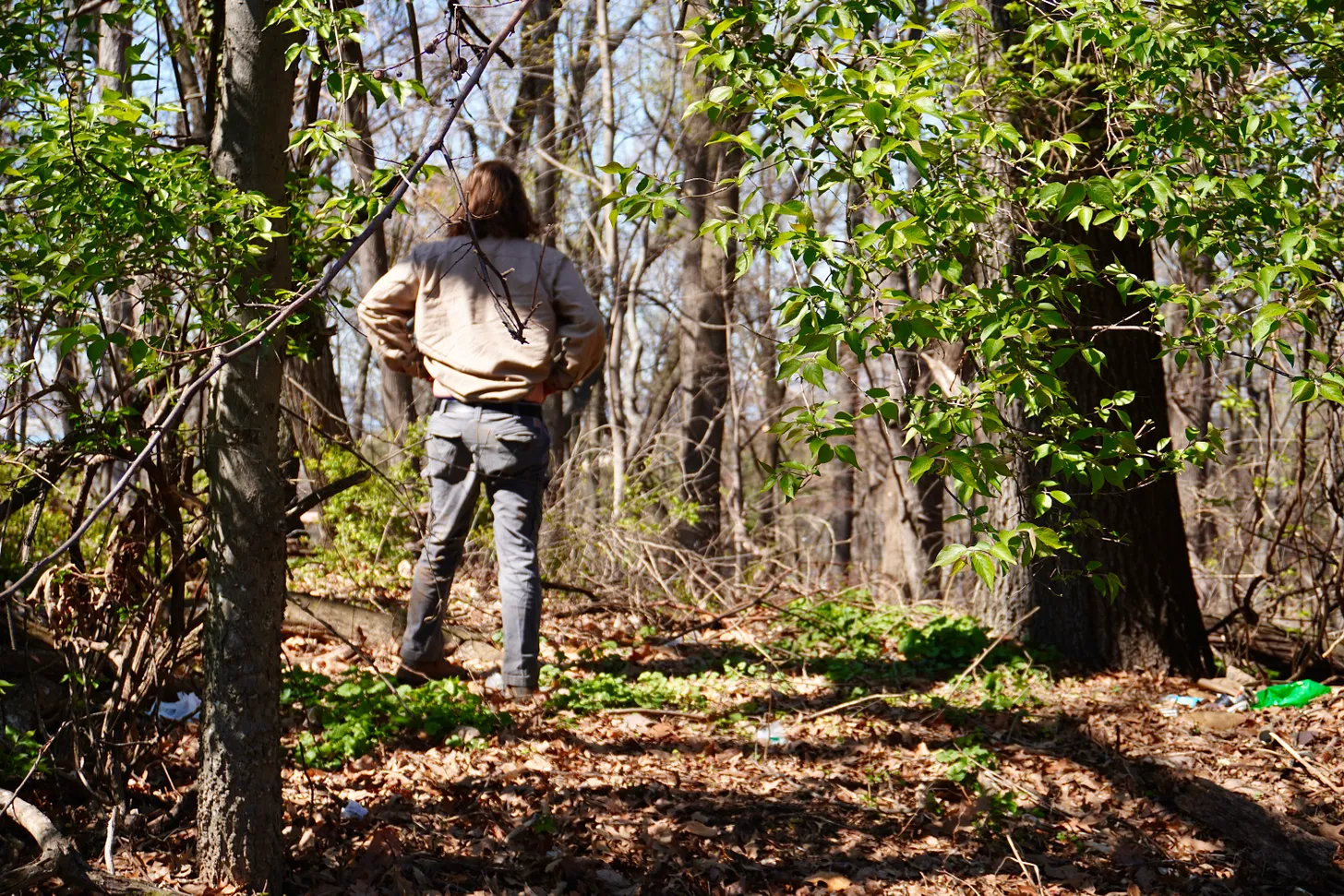
Antalya Maleno

Antalya Maleno
Tucked in between the neighborhoods of Congress Heights and Bellevue in Southeast Washington, D.C. is Shepherd Parkway — a national park home to nearly 200 acres of woods, Civil War forts, and rare microorganisms.
But people passing by would likely be unaware. Shepherd Parkway lacks any signage indicating its identity or rich history. The neglected park faces serious issues like trash dumping, invasive species and few amenities.
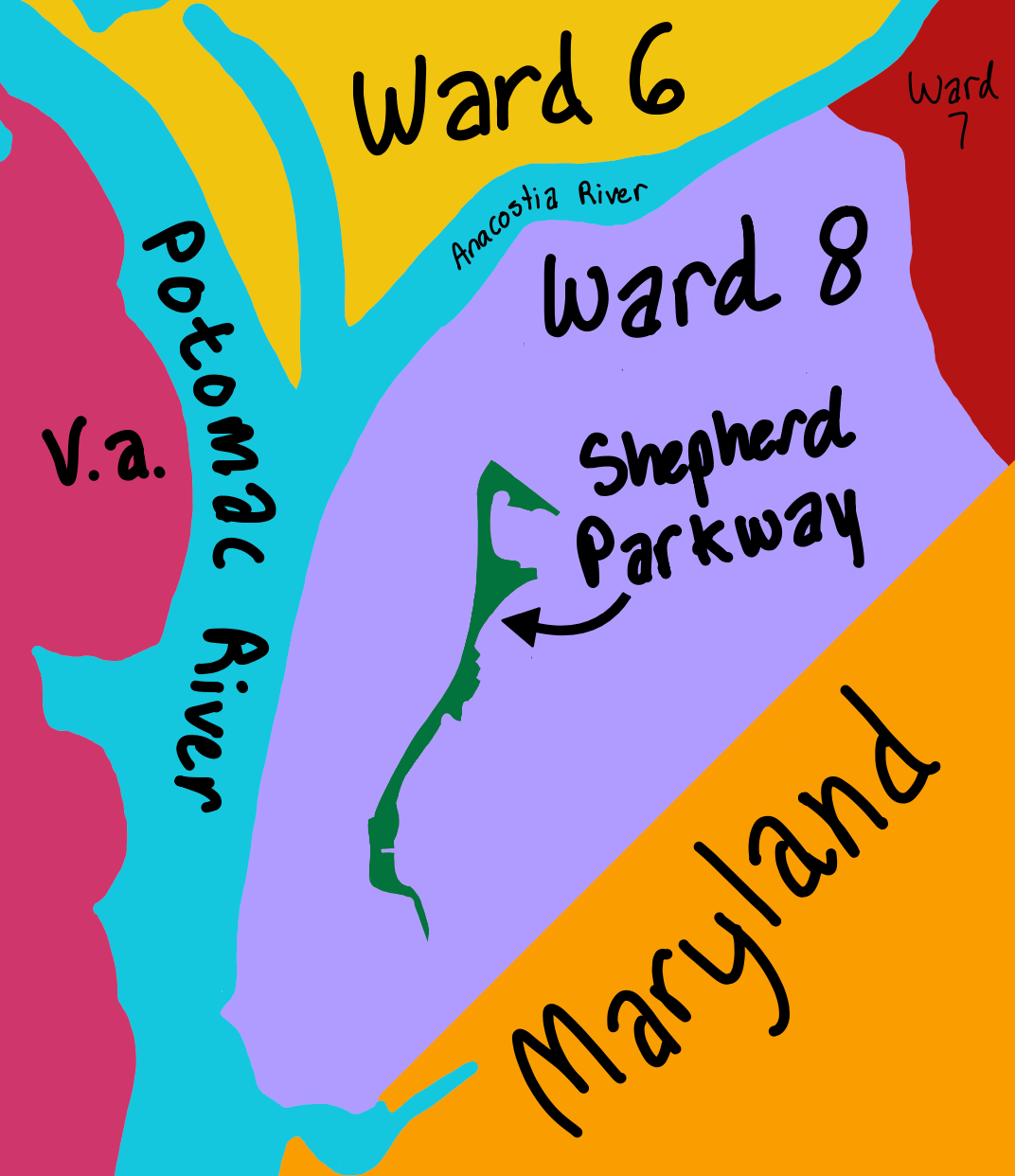
In 2018, environmental activist Nathan Harrington began to fight the park’s neglect through the creation of Ward 8 Woods Conservancy. Ward 8 is the southern-most neighborhood in Washington, D.C.
While working as a public school teacher, Harrington began to volunteer on the weekends at Shepherd Parkway. He saw community members like him take an interest in caring for the park. After searching for a career change, he founded the non-profit through a grant from the DC Department of the Environment in 2018.
“There’s so much work to do out here that weekend volunteer events are not going to cut it,” Harrington said. “And there’s a lot of people living around here who need work.”
Shepherd Parkway faces many challenges including illegal trash dumping and invasive species like the park’s Honeysuckle vine that stifles plant life. On the second Saturday of each month, Harrington hosts volunteers for a few hours to clean up trash and remove invasive plants.
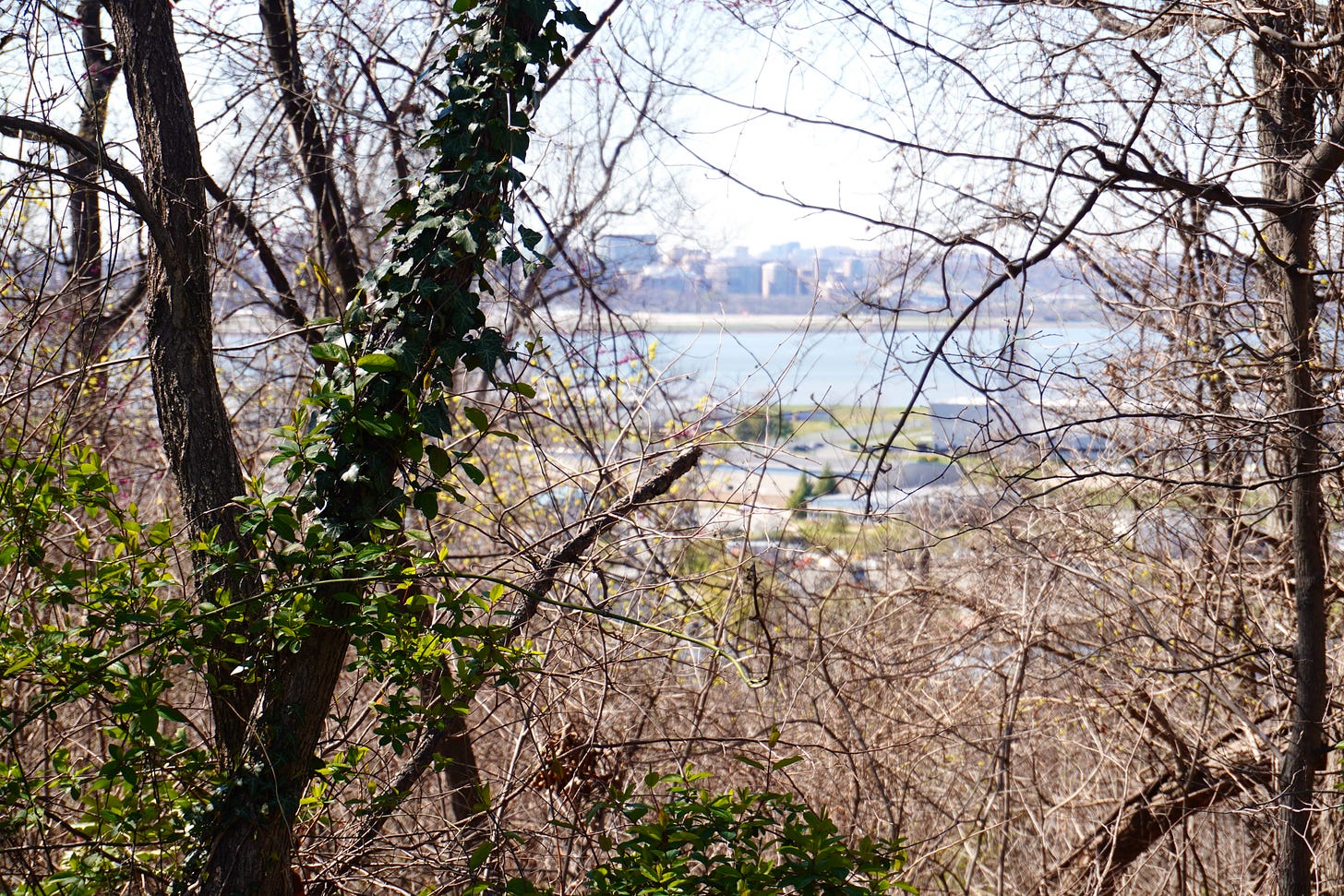
Harrington said that since his team’s establishment, they have removed 1.3 million pounds of trash and cut invasive vines from more than 7,000 trees.
Beginning in 2012, Harrington started envisioning a natural, winding hiking trail going through Shepherd Parkway which would extend 3.6 miles through the wooded area. The proposed trail would serve to replace those carved out by the Civilian Conservation Corps in the 1930s. Due to a lack of upkeep, those are now non-existent.
The entirety of Ward 8 offers only 1.5 miles of natural hiking trails. In comparison, North D.C.’s Rock Creek Park is home to 35 miles of trails. Harrington believes the reason why the trail has taken so long to construct is connected to environmental racism and stereotyping.
“Some think people in a Black neighborhood are not interested in hiking or there are only certain types of people who enjoy that,” Harrington explained.
Harrington added that access to park amenities is an issue of environmental justice.
“If the government agencies that maintain parks do so to different standards — doing a good job in a wealthy area and not the working class area — then that’s not equitable,” he said.
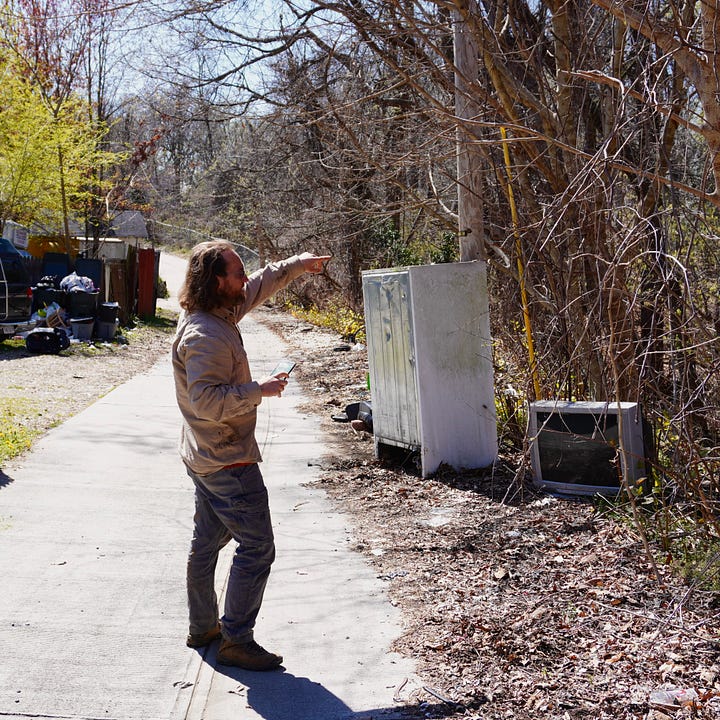
“I think it’s connected with environmental racism and stereotyping,” he explained. “Where some think people in a Black neighborhood are not interested in hiking or there are only certain types of people who enjoy that.”
Harrington added access to park amenities is an issue of environmental justice.
“If the government agencies that maintain parks do so to different standards — doing a good job in a wealthy area and not the working class area — then that’s not equitable,” he said. “It’s not even seen as a park because it doesn’t have amenities or even signage to tell people what it is.”
Despite the park not being readily accessible to residents, it holds a deep value for history and the environment.
Two historic Civil War forts are concealed in the wooded area. Fort Carrol and Greble were hurriedly built by the Union Army to prepare for a possible Confederate invasion of the Capitol. According to the National Park Service, many African Americans escaping slavery would come to the forts in search of protection and work.
The area is also ecologically significant as biologists recently identified two never-before-seen aquatic microorganisms in the park’s seeping groundwater. In an article published in February 2024, the biologists state that it is likely that these amphipods independently evolved within these small, continuous puddles of groundwater.
These important sites are extremely difficult to access. To Harrington, these tidbits should give the National Park Service all the more reason to construct a natural trail in the park.
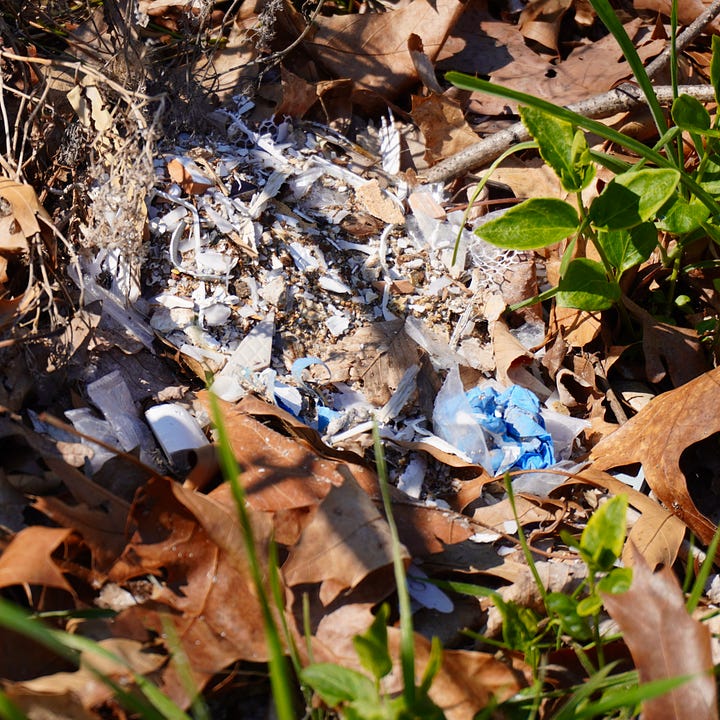
In D.C., NPS maintains more than 30 parks including Shepherd Parkway and works closely with the DC Department of Recreation.
NPS released a concept plan for Shepherd Parkway in 2020 that detailed the need for new amenities. The plan suggests a paved sidewalk around the perimeter of the woods rather than a natural hiking trail. However, Harrington disagrees with this plan.
“I would rather have a trail where one can have an immersive experience going through the woods,” Harrington said. “It’s a lot cheaper to build and has a lot less environmental impact.”
NPS declined to comment about the issue of a trail or general upkeep in Shepherd Parkway.
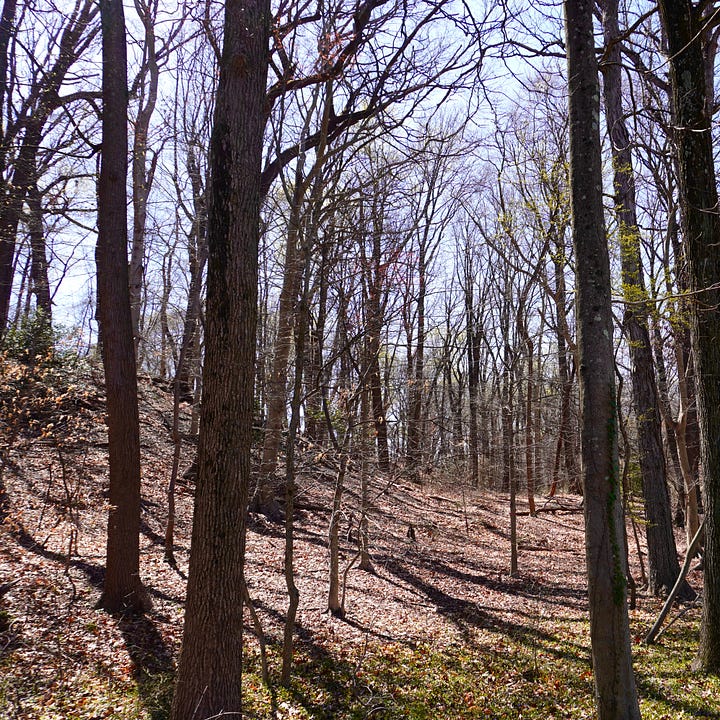
Some residents disagree with the push for a wooded trail because of concerns over crime. In 2017, Congress Heights resident Nikki Peele released an online petition to close Shepherd Parkway because of neglect, “loitering,” and “vandalism.”
“Shepherd Park is NOT a community park — at least not for the children, teens, adults, seniors and families that live in Congress Heights,” Peele wrote in the petition.
The online petition did not reach its goal, but its sentiment remained.
Mustafa Wright and Smur Dagambino are brothers who often bring their children to visit Greble Point Park located along Shepherd Parkway.
“It’s dangerous to live in this,” Dagambino said, adding the area around the park is “not funny.”
Despite frequently visiting the park, they had not heard about any plans for a trail. Wright said he is “not totally opposed” to the trail. He often walks around Anacostia Park using its designated pathways.
Dagambino added he felt positive about the trail because it could provide a shortcut to the Metro or a space for kids to play.
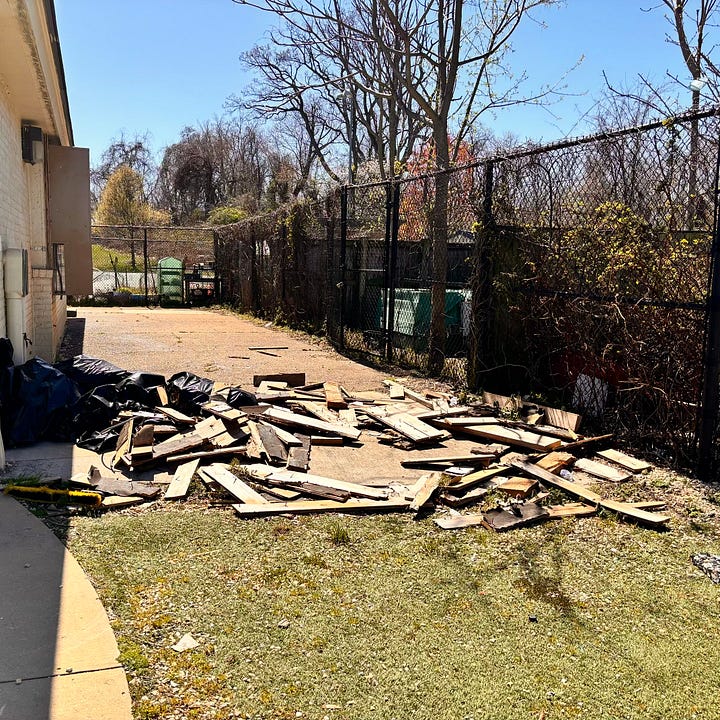
Harrington, like other residents of Ward 8, acknowledges fears about safety. He said it is “not crazy” to think crime or violence could come into a park but offers a different solution to those who are worried.
“Instead of complaining about the people who are in the park and the things that they’re doing — if you want to use the park for something else, go do it,” he said.
Currently, the next steps for the Shepherd Parkway hiking trail remain stagnant, but Harrington plans on continuing Ward 8 Woods Conservancy’s push to make Shepherd Parkway more cherished and accessible.
“It can feel — literally and figuratively — like a voice in the wilderness saying, ‘Hey! What about that?’” he said. “But these are special places. We need to preserve them so that future generations can enjoy them.”